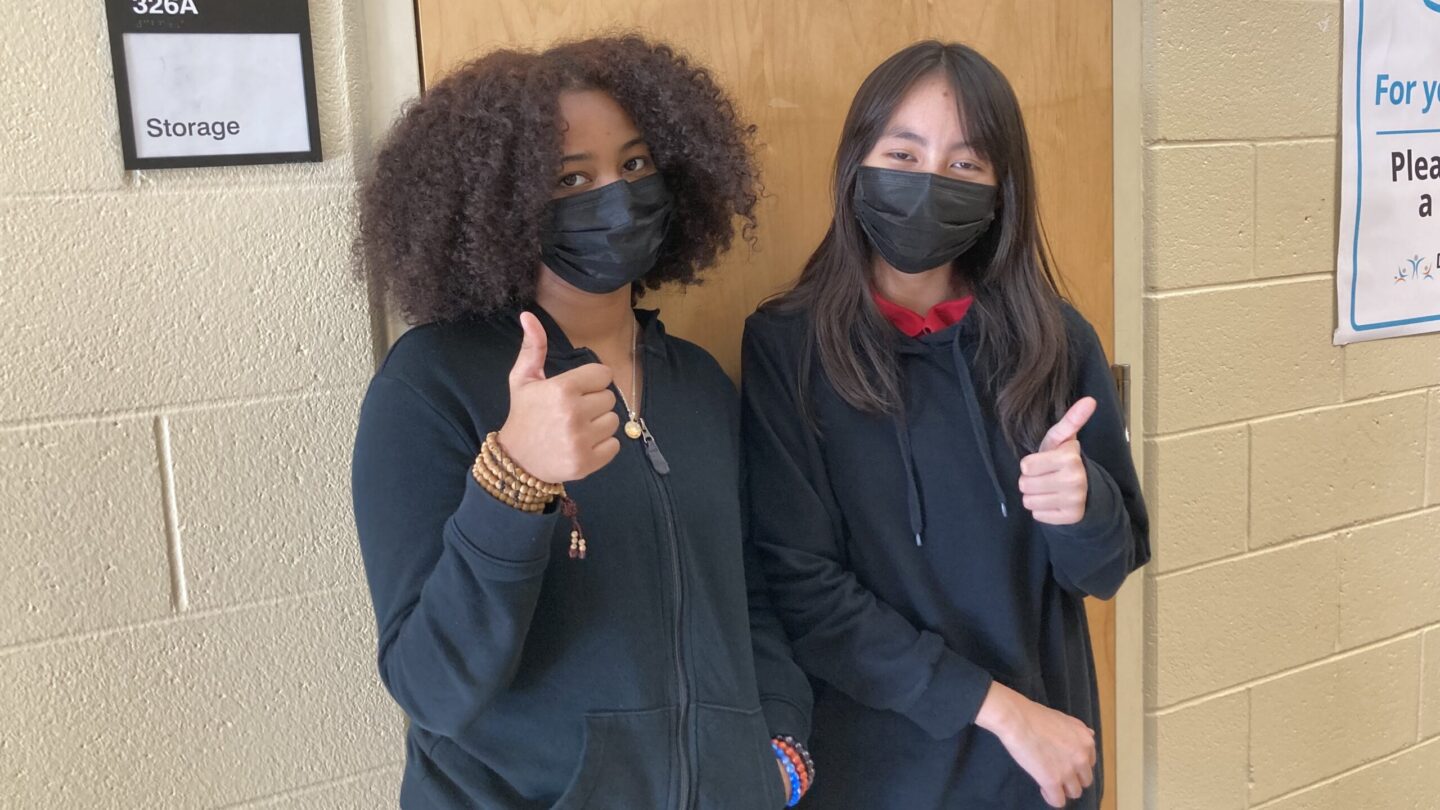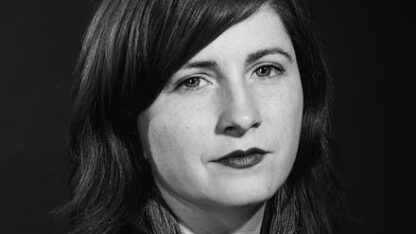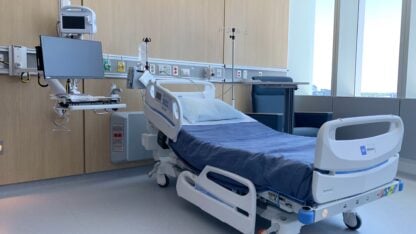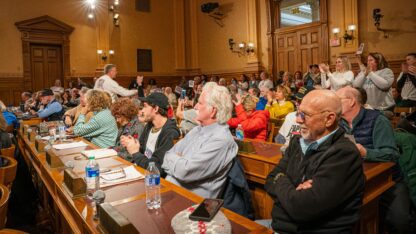Emory University scientists are working with metro Atlanta middle and high schoolers to help students and their communities learn more about the air they breathe, and whether it’s polluted.
It’s a collaboration between university scientists and their college students, and younger students and their teachers, to help fill in gaps in air quality data in Georgia.
Earlier this year, Eri Saikawa, an environmental studies professor at Emory, visited Stone Mountain Middle School in Tucker to mount an air quality sensor on the school with help from Emory research scientist, and her husband, Alexander Avramov.
As she pulled the sensor out of a box, the two 8th graders involved in the project marveled at the device.
”It’s so cool that something so little can obtain so much data,” said 13-year-old Emnet Michael, who said she’s hoping to work in medicine.
The sensor, manufactured by a company called Airly and donated by them for this project, can fit in one hand. Elizabeth Bui, 14, has an interest in the engineering side and was also impressed.
“I want to build one one day,” she said.
Saikawa is installing sensors like these at more than a dozen schools around Atlanta.
“I think a lot of people don’t realize how important air pollution is,” she said. “I think it’s really important to know what you’re breathing, and without the data you don’t know.”
Pollution, like the kind that comes from cars and trucks, can exacerbate asthma and other lung problems, and it can make cardiac conditions worse, too. Nationwide, people of color are disproportionately exposed to higher levels of air pollution, according to a U.S. Environmental Protection Agency-funded study published last year.
There are state and federal air monitors in Atlanta, but they are relatively few and far between.
Over the past few years, though, the technology has gotten cheaper, to the point where individuals curious about what they’re breathing can buy their own air sensors. Community projects have popped up in other cities, including Houston, New Orleans and the San Francisco Bay Area.
Saikawa’s work with Atlanta schools grew out of an Emory student’s project to put up an air sensor on campus. Saikawa then got a grant from the EPA to expand the network, and hosted an event at the Atlanta Science Festival. Saikawa was able to grow the project even more when Airly donated sensors as part of its own campaign to monitor air quality near schools.
The two middle school students weren’t allowed on the roof to watch Saikawa and Avramov mount the sensor – “It most definitely makes sense. But still I had my hopes up,” Emnet said. So while the scientists headed up without them, the 8th graders thought about what they’ll do with the information they get.
Elizabeth wasn’t sure how she’d feel about it.
“This school is located right next to a highway,” she said. “If the air quality is bad, then all the students around here are going to inhale bad air.”
Emnet said that information would be helpful, though.
“It could be announced on the announcements,” she said. “Like, ‘Good morning you guys.’ Recite the pledge. Tell us what’s going on around the school. ‘The air quality’s this that and the third.’ Just inform.”
Elizabeth and Emnet’s science advisor, 6th grade earth sciences teacher Michelle Autrey — who’s also an advisor with the organization behind the Science Fest — encouraged the students to apply to participate in the air sensor program.
“To see them engaged in something that will impact their community, and they’re trying to raise awareness here at the school, it’s amazing,” she said.
Saikawa said even if she doesn’t find any alarming hotspots near any of the schools, she thinks it’s helpful for people to have more information. The data from the sensors in this project will go to Airly, which posts maps showing air quality. Saikawa will analyze it, too, comparing it to the official monitors that are already in place.
The Emory team is also hosting a hackathon for middle and high school students later this month, where they’ll be able to work with the data.
And it doesn’t hurt to check; a few years ago, one of Saikawa’s students found high levels of lead in an Atlanta neighborhood. It turned out to be such a widespread problem, the EPA intervened and declared it a Superfund site. Federal officials are now paying to remove and replace all the soil in some people’s yards in English Avenue and Vine City.
“We want to get into underserved communities a bit more,” Saikawa said. “We got really into community-engaged research, and how can we really do research that’s more useful for the community.”
She said she also hopes this project helps keep students like Emnet and Elizabeth engaged and interested in STEM subjects through their bond with the older Emory students who they’re learning from.










